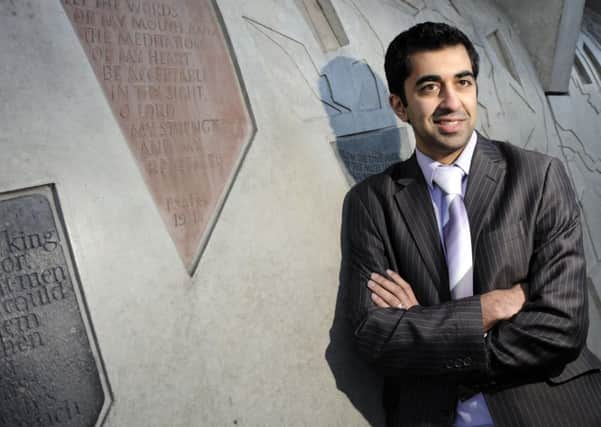Yes vote may bring ‘rebalance’ to England - Yousaf


Humza Yousaf suggested that, with the responsibility for Scotland removed, Westminster politicians might pay more attention to areas of England which have been historically neglected.
Mr Yousaf also insisted that independence would give Scotland a bigger voice on the international stage, dismissing a warning from former prime minister Sir John Major that its influence would be diminished if it is no longer a part of the United Kingdom.
Advertisement
Hide AdAdvertisement
Hide AdThe Scottish National Party MSP, who serves as minister for external affairs and international development, backed First Minister Alex Salmond’s claims that an independent Scotland could secure a better deal for its farmers and fishermen on European Union subsidies than they receive as part of the UK.
Asked what impact Scottish independence would have on England, Mr Yousaf told BBC Radio 4’s Today programme: “If anything, my hope is and my desire is that actually there’s a rebalance of politics across England. I do much travelling, and recently I did BBC Question Time in Coventry, and there actually people felt completely disconnected from the politics in London.
“Hopefully, if and when Scotland becomes independent, it will force London politicians to think more about the Midlands, the West Midlands, the north of England, which have suffered historic neglect regardless of whether Labour or Conservatives have been in power.”
Responding to Sir John’s warning, Mr Yousaf said: “I’m not sure I would take advice on Scottish politics from John Major, who saw the complete wipe-out of his party in Scotland and opposed the Scottish Parliament. I’m not sure he’s the best to come up to Scotland and lecture us on what’s best.
“Nonetheless, his argument is not borne out by the facts. Small countries are hugely influential on the world stage. We know that from the impact of the Oslo Accord, the Geneva Conventions, the head of Nato is a former Danish prime minister, Luxembourg is a founding member of the EU and the United Nations.
“Academics have shown that small countries in the EU, when it comes to negotiations and deals, they get a better deal than the bigger countries.
“Fundamentally it’s about what kind of country we want to be on the global stage. Scotland does not aim or have the ambition to be a great military power on the world stage. We aim to have a positive contribution and that contribution already as a devolved country already has been recognised - for instance on what we do in climate mitigation - by Ban Ki-moon, Desmond Tutu and former Irish president Mary Robinson. That’s the kind of country we intend to be.
Advertisement
Hide AdAdvertisement
Hide Ad“We don’t have a voice at the top table at the moment. This is the fundamental logical fallacy of John Major. We don’t have a voice as Scotland.”
Mr Yousaf said that smaller countries, such as Ireland, had shown themselves able to negotiate better agricultural subsidies from the EU than Scotland.
“It’s pretty logical that if you are an independent country negotiating at the top table in your own right, you are going to get a better deal,” he said. “Clearly, Scottish farmers and Scottish fishermen have suffered because they’ve been an afterthought to negotiations by the UK Government. That’s just a statement of fact.
“From Cabinet papers which have recently been released, we’ve seen that Scottish fisheries were a dispensable bargaining chip at one point. Scotland is relegated at the moment because of UK negotiations to the bottom of the league tables of rural development and agricultural subsidy. Negotiating in our own right, we could do what Ireland does and many small countries do in Europe and get a much better deal.”